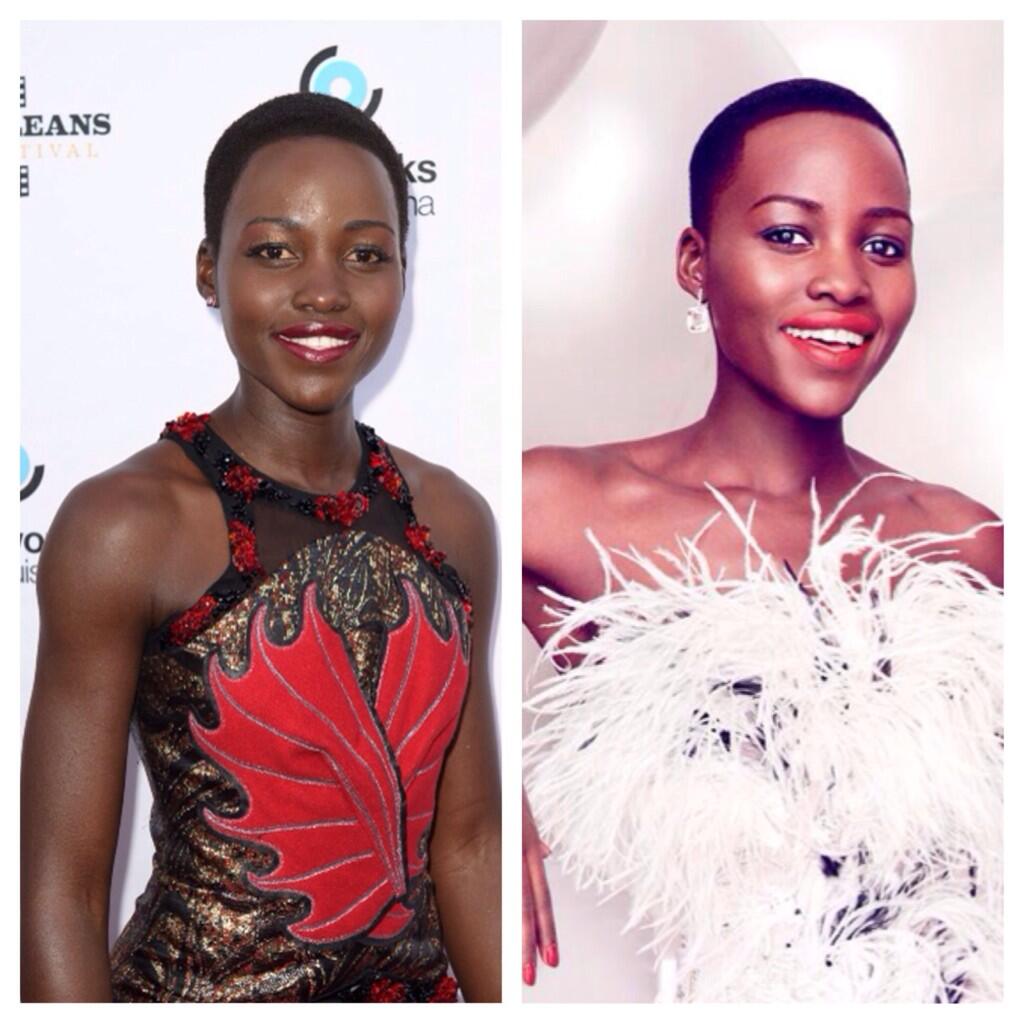 There were only two topics that should have dominated any conversation about actress Lupita Nyong’o last Thursday. That morning (and after much hype), she was officially nominated for an Academy Award for her first film role as Patsey, an enslaved woman abused by her sadistic owner, in 12 Years a Slave. And that evening she gave an emotional speech that moved many to tears as she accepted an award for best supporting actress from the Critics’ Choice Awards.
There were only two topics that should have dominated any conversation about actress Lupita Nyong’o last Thursday. That morning (and after much hype), she was officially nominated for an Academy Award for her first film role as Patsey, an enslaved woman abused by her sadistic owner, in 12 Years a Slave. And that evening she gave an emotional speech that moved many to tears as she accepted an award for best supporting actress from the Critics’ Choice Awards.
But that day, there was a third topic swirling around Hollywood’s newest “it” girl. Like W and Dazed & Confused magazines, which recently featured Nyong’o on their covers, Vanity Fair was eager to capture her. Evidently, someone had seen folks fawning over her beauty, talent and grace, and the magazine wanted to add to the fervor.
From the Vanity Fair Twitter account came a picture of Nyong’o wearing white and surrounded by white balloons. Her complexion was noticeably off. Nothing as bad as the before-and-after images of the Nigerian pop star Dencia making the rounds. The entertainer had used Whitenicious, a “skin toning” product, to remove her melanin. But Nyong’o was a weird, much lighter shade than the deep-brown hue the public had grown accustomed to seeing on-screen and in Miu Miu ads. She looked ... off.
“Lupita has a very rich skin hue, which would translate in ANY light,” one woman wrote on my Facebook page after seeing side-by-side pictures of Nyong’o on the red carpet and her latest magazine photo. “Vanity Fair has lightened, brightened AND added some flawed undertones. Instagram on heroin.”
This isn’t the first time black women have complained or been outraged by black celebs’ complexions being toyed with by magazines and advertisers. L’Oréalinfamously caught hell for allegedly lightening Beyoncé’s complexion in advertisements. But oddly, it’s the first time I can recall anyone other than a black woman making a fuss about the issue. In a rarely seen act of white-woman solidarity, the Gloss’ Julia Sonenshein went off about what was either Vanity Fair’s bad lighting or its lightening of Lupita.
“In an industry where every single detail is manipulated to be perfect, it just isn’t possible that everyone fell down on the job and forgot that her skin tone was totally off,” wrote Sonenshein. “There’s just not a chance that this was an accident.
She added, “To perpetuate an idea that the most flattering picture of a black actress is one where her blackness is altered is straight up racist, and if you don’t see that, then you’re frankly part of the problem.”
Read more: here
